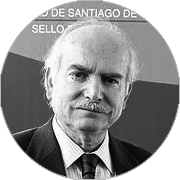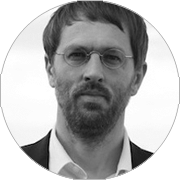The Project
Transitions toward sustainable energy pathways have been examined by Science and Technology Studies (STS) scholars in the context of the widespread revealing of a decline of certainties in the construction of scientific knowledge and technological solutions. The experience of environmental disasters produced by negligent nuclear and fossil technologies also corroborates the urgency of materializing new forms of scalar politics to address different scenarios of Climate Change (IPCC) emerging from the deep problems of the current fossil economy.
For example, in Latin America the proposals for good living –Sumak Kawsay– in Ecuador, which assign rights to nature and future generations, open new and novel paths in the discussion of alternative transition processes. The debates on ecological debt, global governance, neo-extractivist interests and national governance of natural resources also each intersect with the challenges of energy transitions.
In Chile some major challenges come from the early privatization of the energy sector, energy dependence on foreign fossil fuels, along with the intensive extraction of minerals, particularly copper. The energy institutions of the country are entrenched in global market principles, which do not effectively account for these challenges. On the other hand, opportunities do exist for implementing cleaner and differently configured energy systems based on Renewable Energy Resources, which have the potential to be developed in a decentralized, democratic and smarter way. Typically these are either in urban areas and rural communities not in the most isolated communities.
In recent times the energetically isolated locations of Chile have received the attention of mining companies, in line with their declared Corporate Social Responsibility, mainly to electrify rural communities and thereby offset the environmental impact of their production. However, no work has been done in the study of Municipalities, which without being completely rural, have developed under electricity and energy isolation. This is the case of the Municipalities of Tortel and Melinka, which as living social laboratories have boosted and maintained their energy independence at the expense of momentum and strength.
General Objective:
By enriching the network “Isolated Energy Communities” (USACH)-IDEA-(OeAW)-ITA-LEC we propose to enhance the socio-material focus of energy developments by including the notion of “isolated energy communities” and present a multi-disciplinary analysis method to extract lessons for public policy to support small-scale alternative energy developments distributed and inserted into isolated communities. In particular, the network will focus on questions regarding technology transfer, participatory technology assessment, social learning, and reflexive governance.
Specific objectives:
1. Discuss and exchange research advances and theoretical and methodological issues in the field of distributed systems, energy communities and intelligent systems.
2. Enhance research in the centers involved in the network with regard to the social-material configuration of energy transitions, and apply these contributions to the field of social and political studies of science and technology.
3. Elaborate a multi-disciplinary theoretical focus which includes the notion of institutionally articulated energy practices for communities in isolated territories.
4. Provide a communicative strategy by an access-free portal in Spanish and English containing collections of documents and academic work about the subject.
5. Jointly explore alliances with other institutions to enable the network generated by this project to expand (For example, toward the Project transitions towards sustainable energy communities at SPRU of University of Sussex or the project SMART VILLAGES from the European Academies Science Advisory Council).
Expected results:
1. Institutionalize existing international contacts between the participating institutions in a network of joint research. (Signing of an Agreement).
2. Jointly construct a theoretical-methodological approach including free access isolated energy practices, to promote research in the area. (Work paper)
3. Share personal expertise and research advances and approaches to the subject, developed in Latin American and outside the region. (Website).
4. As a result, national and international academic productivity around the common theme of study, including Chile and Latin America in international studies of sustainable energy practices and add complexity to the understanding of recent Latin American context incorporating the variables of socioenvironmental conflicts with the local dynamics toward extractivism, will increase on both ends with greater presence of indexed articles. (Indexed publication).
5. Strengthen undergraduate master’s and doctorate teaching in the proposed subject, raising the level of related master’s and doctoral theses, linking them to the main lines of research in the area. (Modules in courses in Master’s and PhD programs).
The Team

Cristian Parker Gumucio
Degree in Sociology, Catholic University of Chile.
Degree in Development Studies, Latin American Institute of Doctrine and Social Studies.
Doctor in Sociology, Catholic University of Leuven, Belgium.
cristian.parker@usach.cl

Gloria Baigorrotegui Baigorrotegui
Degree in Engineering Science, University of Santiago, Chile.
Diploma in Business Studies and International Trade, University of Barcelona, Spain.
Ph.D., mention Social Studies of Science and Technology, University of the Basque Country, Spain.
gloria.baigorrotegui@usach.cl

Michael Ornetzeder Ornetzeder
Degree in Sociology and Geography at the University of Vienna.
Ph.D. at the University of Vienna.
Venia docendi (Science and Technology Studies), University of Natural Resources and Life Sciences in Vienna.
ornetz@oeaw.ac.at

Gordon Walker Walker
Professor, Lancaster Environment Centre (LEC).
Co-Director DEMAND Centre (Dynamics of Energy Mobility
and Demand), Lancaster University.
g.p.walker@lancaster.ac.uk
Other participants of the research group in Chile:
Fernando Estenssoro Saavedra, Doctor in American Studies, University of Santiago, Chile. Master of Political Science, mention institutions and processes. Pontifical Catholic University of Chile.. fernando.estenssoro@usach.cl
Ingeborg Mahla Álvarez, Electronic Engineer, Technical University Federico Santa Maria, Chile. Master of Engineering, Universidade Estadual de Campinas – UNICAMP, Brazil. Doctor in Electrical Engineering, Universidade Estadual de Campinas – UNICAMP, Brazil. ingeborg.mahla@usach.cl
María Teresa Santander Gana, Civil-Industrial Engineer and Degree in Engineering Science, University of Santiago Chile. PhD in Science Philosophy, University of Valencia, Spain. mariateresa.santander@usach.cl
José Luis Opazo Bunster, j.opazo@sussex.ac.uk
Hugo Romero Toledo, Ph.D in Human Geography, University of Manchester. Postdoctoral Researcher, in Geography of Conflict, School of Sociology, University Diego Portales, Chile. hugo.romero@mail.udp.cl
Claudio Herrera Figueroa, claudio.herrera.f@usach.cl
Nina Radovic Fanta, nina.radovic@usach.cl
Publications
Baigorrotegui, G. y Parker, C. (ed.) (2018) ¿Conectar o desconectar? Comunidades Energéticas y Transiciones hacia la Sustentabilidad. Santiago: Colección Idea. This book presents theoretical reflections and practical experiences on energy communities in Chile, Austria, England and South Korea. It is a mandatory reading for those who work in this area in Latin America. Free download here.
Baigorrotegui, G. (2018) Comunidades Energéticas en la Patagonia. Tan lejos y tan cerca del Extractivismo. Estudios Avanzados 29. The abstract available here. http://orcid.org/0000-0002-8381-5728
Next publication of the book “Connecting or disconnecting? Energy and Community for energy transitions.” IDEA online collection. Spanish. Available at the end of 2016. The summary available here.
Working Paper 1. REDES 14007. Light and Shadow for Isolated Energy Communities in Patagonia. Available here.
Parker, C. Sobre transición energética y ecodesarrollo. Voces en el Fénix, Nº 43, abril. pp. 126-133. Available here.
Gloria Baigorrotegui, Cristián Parker, Fernando Estensoro, Visiones sobre los tránsitos socio-técnicos hacia patrones de consumo sustentable en agua y energía en la minería sudamericana. Dos controversias argentinas, Sociologias, Porto Alegre, ano 16, no 37, set/dez 2014, p. 72-111. Available here.
Parker, C., Letelier, M., Muñoz, J., Elites, Climate Change and Agency in a Developing Society: the Chilean Case, Environment, Development and Sustainability, Vol 15.pp.1337-1363. Available here.
Baigorrotegui, G. Socio-environmental conflict in the construction of a power plant in Spain’s Basque Country: strategies, expertise and certifications. The International Journal of Justice and Sustainability, Septembre, 2013.
Wächter, P., Ornetzeder, M., Rohracher, H., Schreuer, A., & Knoflacher, M. (2012). Towards a sustainable spatial organization of the energy system: Backcasting experiences from austria. Sustainability, 4(2), 193-209. Available here.
Yonjoo J., Simcock,N. Walker, G. 2012. Making Power Differently: Exploring the Motives and Meanings of Community Renewable Energy Development in Cases from the UK and South Korea in Davies, A. (Ed.). Enterprising communities: grassroots sustainability innovations (Vol. 9). Emerald Group Publishing, Chapter 6. Available here.
Schreuer, A., Ornetzeder, M., & Rohracher, H. (2010). Negotiating the local embedding of socio-technical experiments: a case study in fuel cell technology.Technology Analysis & Strategic Management, 22(6), 729-743. Available here.
Walker, G., Devine-Wright, P., Hunter, S., High, H., & Evans, B. (2010). Trust and community: Exploring the meanings, contexts and dynamics of community renewable energy. Energy Policy, 38(6), 2655-2663.
Walker, G., & Devine-Wright, P. (2008). Community renewable energy: What should it mean?. Energy policy, 36(2), 497-500.
Walker, G., Hunter, S., Devine-Wright, P., Evans, B., & Fay, H. (2007). Harnessing community energies: explaining and evaluating community-based localism in renewable energy policy in the UK. Global Environmental Politics,7(2), 64-82.

